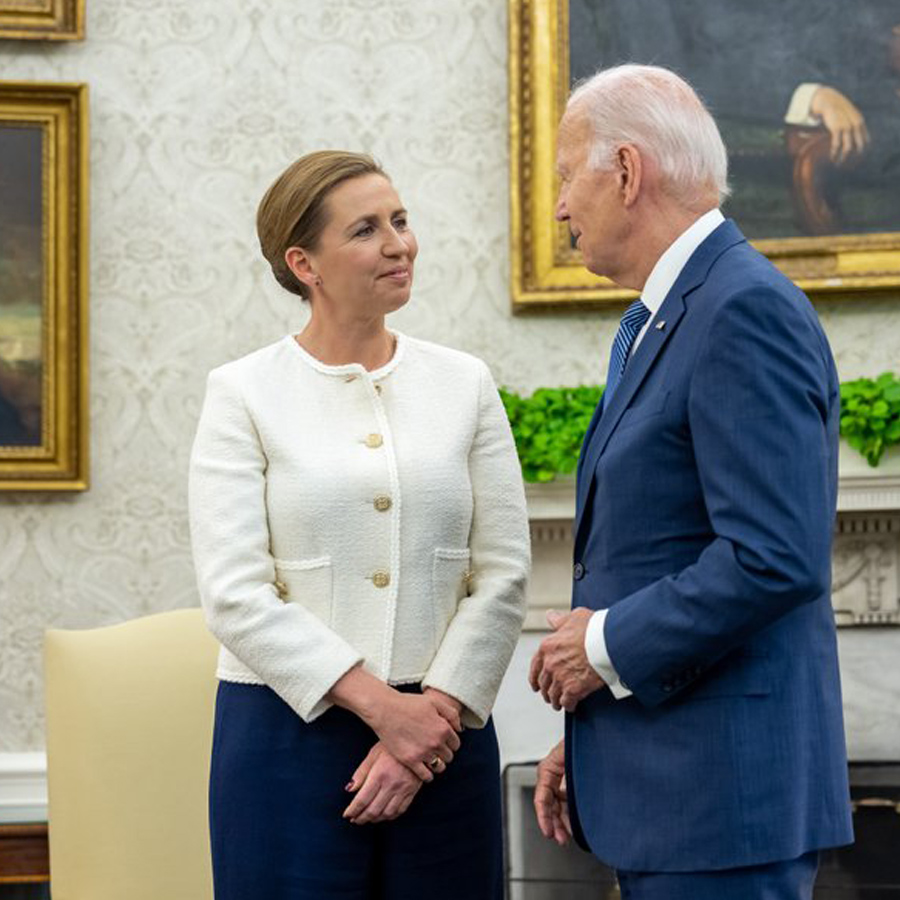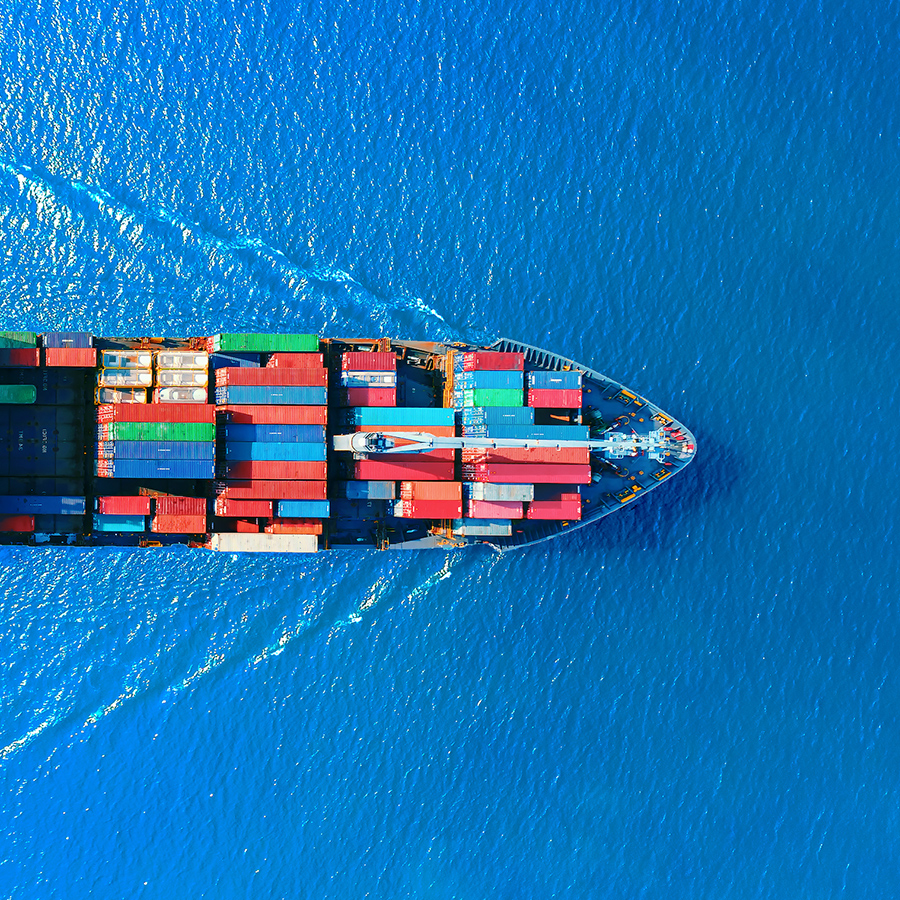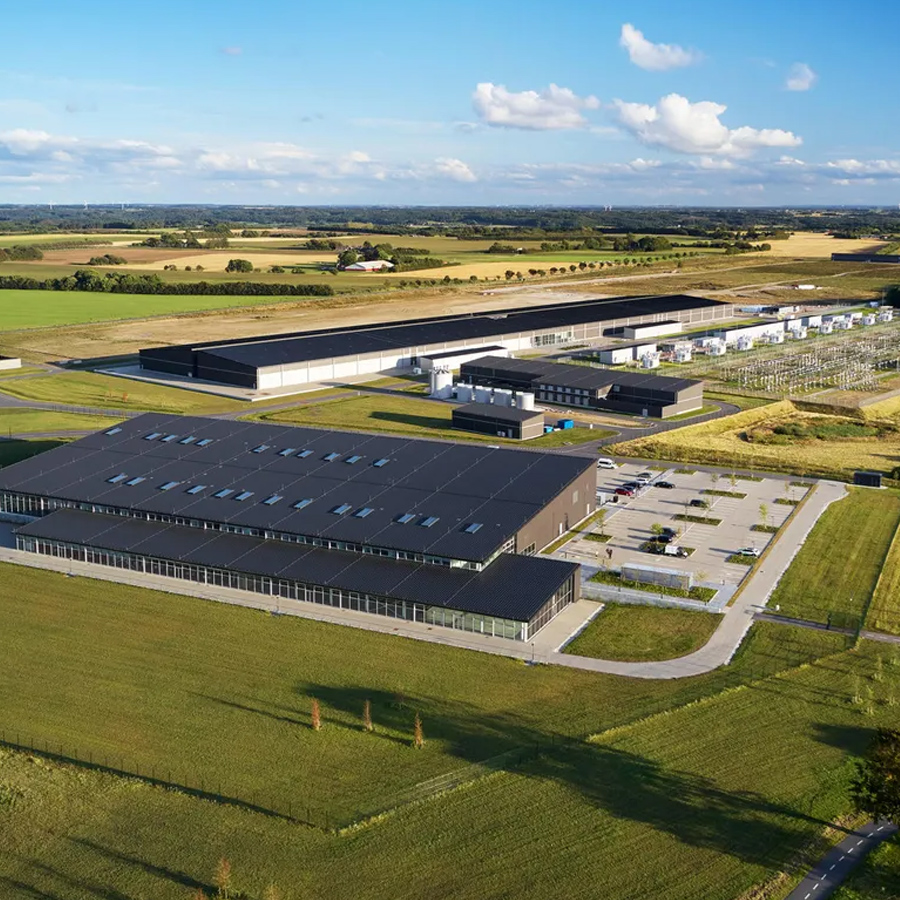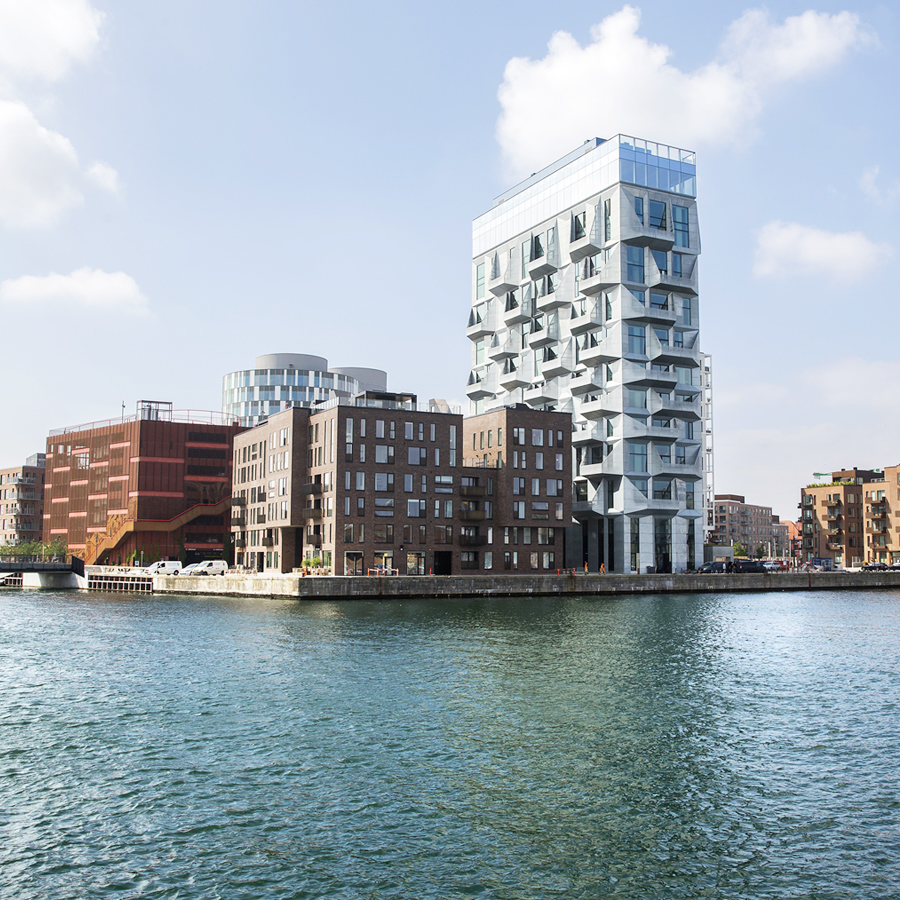DENMARK IS A EUROPEAN LEADER IN BOTH DIGITIZATION AND GREEN TECHNOLOGIES, PARTICULARLY OFFSHORE WIND. IN THE 2022 EUROPEAN DIGITAL ECONOMY AND SOCIETY INDEX, THE COUNTRY RANKED SECOND HIGHEST IN ITS DIGITIZATION EFFORTS IN EUROPE BEHIND FINLAND.
Denmark – US relations
During President Biden’s meeting with Prime Minister Frederiksen on Denmark’s Constitution Day in Washington DC on June 5, both leaders emphasized the strong alliance and close friendship between the United States and Denmark, highlighting shared values. They also discussed collaboration on global issues such as supporting Ukraine against Russian aggression and addressing climate change. Denmark’s leadership in the clean energy transition was acknowledged, and both countries are working on strengthening shared security through a bilateral defense cooperation agreement. President Biden was commended for his commitment to the transatlantic alliance, and they emphasized the importance of unity among allies in the face of current European conflicts. They also appreciated President Biden’s leadership in the fight against climate change while promoting sustainable economic growth.


Renewable energy
Denmark holds exceptional business opportunities for the fast-growing cleantech sector. The country’s national goal is to reduce CO2 emissions by 70% by 2030 and towards net zero by 2050.
Denmark is a pioneer in wind energy with six of the world’s top 10 wind turbine manufacturers present in the country and some of the best natural wind conditions in the world.
The wind power companies that move here join an impressive cluster that includes. 80 % of all offshore turbines are Danish.
Green maritime and transport
Denmark a pioneer in sustainable fuels suitable for green aviation. The government has allocated DKK 3bn (USD 430 million) to the development of sustainable aviation fuels to be financed through a flat passenger fee of DKK 100 (USD 14) on all domestic flights. The goal is to ensure that Denmark’s first fully sustainable domestic flight is on wings by 2025. Denmark’s leading position in sustainable fuel likewise creates opportunities for the maritime industry. The Danish maritime industry is one of the largest in the world, and is currently moving quickly towards green transition. Led by the Danish Maritime Authority, Denmark has joined forces with the US, Norway, the Global Maritime Forum and Maersk Mc-Kinney Møller Center for Zero Carbon Shipping to create the public/private partnership called “Zero-Emission Shipping Mission”.


Life Sciences
Denmark has the largest commercial drug-development pipeline in Europe and a leading position within research and development. Besides biotech, Denmark is also a frontrunner in medtech, eHealth, and medical cannabis. Denmark’s life sciences sector reflects its leadership at the global level, generating a substantial $17 billion in exports. Employing over 40,000 experts, the industry allocates an impressive 14% of its revenue to research and development. Renowned companies like Novo Nordisk exemplify Denmark’s leadership in pharmaceuticals, showcasing innovation and scientific excellence. Moreover, the sector contributes significantly to the nation’s economy, underscoring its pivotal role in Denmark’s dynamic and cutting-edge landscape of life sciences and healthcare innovation
Agri-food
The Danish food manufacturing businesses operate some of the world’s most advanced processing plants and the research and innovation capabilities are internationally renowned and internationally competitive. Danish-based producers of process equipment and ingredients export respectively 80% and 95% of their goods. The Danish agriculture sector produces enough food for around 15 million people – three times the population of Denmark; although, the food sector provides almost 150,000 full time jobs, equivalent to 5-6% of total Danish employment. Furthermore, Denmark’s agrifood industry boasts a remarkable contribution to the country’s economy, accounting for approximately 21% of total Danish merchandise exports. The sector’s commitment to sustainability is evident, with 45% of Danish agricultural land certified as organic.


TECH AND INNOVATION
Denmark has world-class research and development facilities, an internationally competitive ICT cluster, and access to one of the most innovative talent pools. Moreover, Denmark is praised as the world’s best test market for ICT and as the perfect test lab for Smart City solutions. With the most digitized public sector and an ambitious national strategy on open data, big data, AI, fintech, software development, quantum technology, sound, and robotics are just some of Denmark’s many ICT strongholds. Denmark’s ICT sector is at the forefront of innovation, representing a powerhouse in Europe. With an annual growth rate of 6%, the sector contributes 4% to Denmark’s GDP, employing over 150,000 professionals.
Power to X
The EU Power-to-X ambitions includes the aim of installing at least 6 GW of renewable hydrogen electrolysers in the EU by 2024, and 40 GW by 2030. This requires availability of a tremendous amount of renewable power supply. Denmark has focused on green energy supply for more than 40 years. Today, more than 75% of the energy in the Danish electricity grid is from renewable sources – one of the highest levels in the world, and 100% green electricity in the grid is foreseen by 2027. On top of this Denmark provides huge offshore wind power resources. The Danish sector of the North Sea potentially could provide 40 GW of offshore wind power, which corresponds to three times more than the expected total Danish power consumption by 2040.


Green data
Denmark’s low latency network gives a high-speed connection to Central Europe, Ireland, the UK and the US. And less than 50% of the fibre grid capacity that runs through Denmark is currently in use. High-capacity power connections link Denmark with the Netherlands, Norway, Sweden and Germany. Connection to the United Kingdom is in the pipeline.
Invest in Denmark has helped several of the world’s large tech companies to establish hyperscale data centres in Denmark. Apple has built and operates a 166,000m2 hyperscale data centre near Viborg. Facebook selected our third largest city, Odense, for a 55,000m2 data centre, and announced in 2020 an expansion to nearly 85,000m2. Google acquired 73 hectares of land in Fredericia and now operated a 42,000m2 data centre. Google has also acquired a 131 hectares site in Aabenraa for potential new data centres.
Energy storage
A Copenhagen residential area called EnergyLab Nordhavn is exploring innovative energy solutions for urban areas. As a full-scale smart city energy lab, it demonstrates how electricity and heating, energy-efficient buildings and electric transport can be integrated into an intelligent, flexible and optimised energy system. The Swiss industrial technology company ABB has delivered the battery energy storage system for the project. This will supply power to approximately 200 apartments in Copenhagen during periods of peak daily demand. The Danish energy company SEAS-NVE is exploring ways to store high volumes of energy in rock heated to 600 degrees. Other companies are exploring options for converting excess renewable energy into hydrogen. This will then be used in industrial processes for transportation or injected directly into the Danish grid. Denmark’s salt caverns are also being investigated for energy storage opportunities in the form of gasses.

